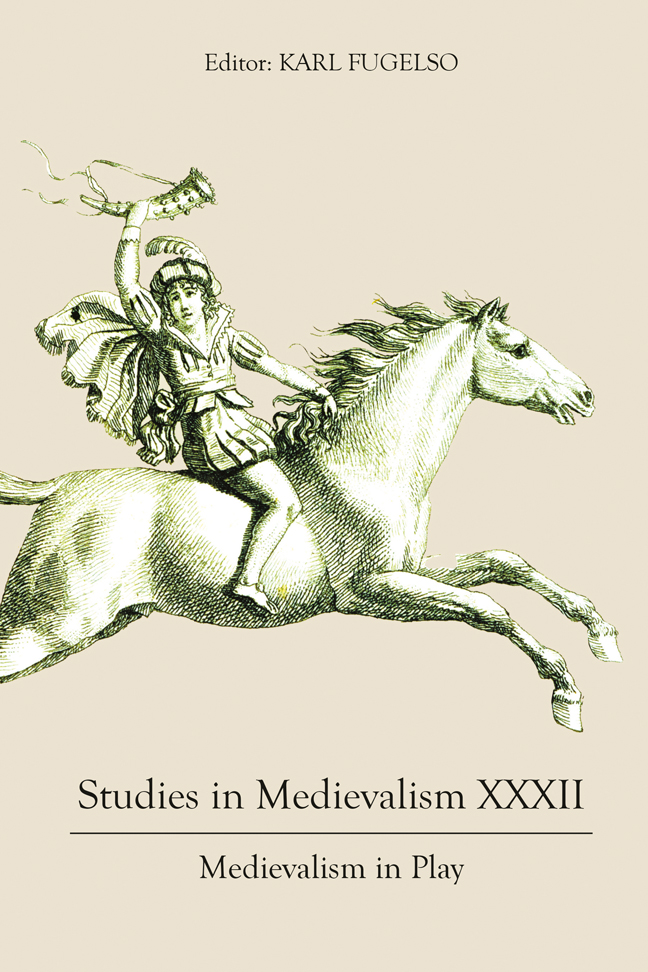George R. R. Martin's “Muscular Medievalism” in A Game of Thrones: Masculinity, Violence, and Fantasy
Published online by Cambridge University Press: 12 January 2024
Summary
In recent years, George R. R. Martin's series, A Song of Ice and Fire, and its HBO adaptation, Game of Thrones, have inspired a flurry of scholarship and criticism, ranging from critiques raised in journalism to those in academic journals like Studies in Medievalism. Among other things, one repeated strand of criticism concerns the notion of its historical authenticity in relation to gender and violence. Many journalists seem to take Martin at his word that the cultural values of his world are indeed medieval and accurately reflect the worldview of people living in that time period. This view is frequently supported by fans of Martin's work, though, as Helen Young has shown, these claims are often mounted defensively and reflexively, and without any real evidence or support. Martin himself has argued in support of his world’s medieval authenticity and defends his narrative choices by claims to expertise through research. For example, in response to Rachel Brown's questions about how he chooses to depict sex and sexual violence in his work and the ensuing critical debates that such scenes have inspired, Martin brushes aside the question, noting that “I’m not writing about contemporary sex – it’s medieval.” And in another interview, Martin maintained that his depiction of Daenerys’ wedding night is consistent with medieval values, claiming that
[i]n a medieval society, there was no such thing as marital rape […]. Marital rape is a conception that just came out of the [Oregon v.] Rideout case […]. [L]et me make it clear here: […] I am not writing about 21st-century America. I’m writing about a quasi-medieval society, which had very different standards on these issues.
As support for his claimed expertise and research, Martin includes some suggested reading on his website, although many of the sources identified there are both non-academic and badly out of date.
Medievalists, on the other hand, have been more cautious in advancing claims of Martin's work and its trueness to the Middle Ages. Some scholars, like Kelly DeVries and Michael Livingston, have argued that Martin's work is not a mimetic reflection of the period, and that the narrative's strength derives not from a kind of authenticity, but from its intense drama and imagination.
- Type
- Chapter
- Information
- Studies in Medievalism XXXIIMedievalism in Play, pp. 95 - 114Publisher: Boydell & BrewerPrint publication year: 2023



